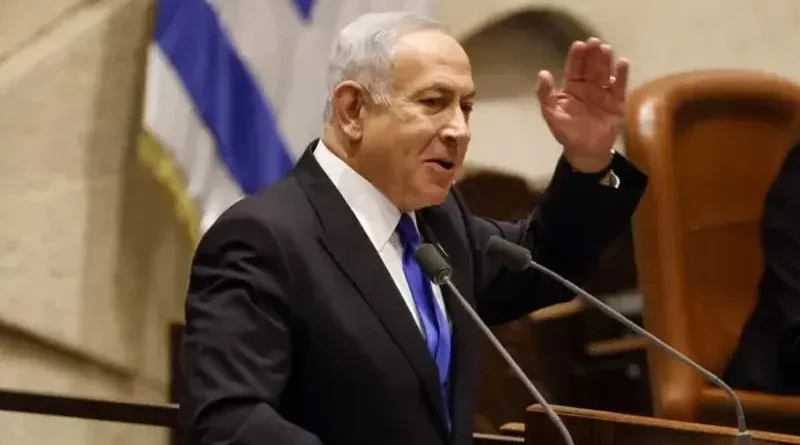Israel’s Netanyahu returns with hard-right cabinet set to expand settlements
JERUSALEM: Benjamin Netanyahu was sworn in as Israel’s prime minister on Thursday in a comeback at the head of a hard-right cabinet that promises to expand Jewish settlements in the occupied West Bank and pursue other policies criticised at home and abroad.
The 73-year-old political veteran, who is on trial for graft charges he denies, has sought to calm concerns about the fate of civil rights and diplomacy since his bloc of nationalist and religious parties secured a parliamentary majority in a Nov. 1 election.
His allies include the Religious Zionism and Jewish Power parties, which oppose Palestinian statehood and whose leaders — both West Bank settlers — have in the past agitated against Israel’s justice system, its Arab minority and LGBT rights.
Netanyahu has repeatedly pledged to promote tolerance and pursue peace. He told parliament that “ending the Israeli-Arab conflict” was his top priority, along with thwarting Iran’s nuclear programme and building up Israel’s military capacity.
Opponents heckled him with chants of “Weak! Weak!”. They say Netanyahu had to make costly deals to secure new partners after centrist parties boycotted him over his legal woes.
His government secured 63 of a possible 120 parliamentary votes in a confirmatory ballot, before the cabinet was sworn in.
And despite the deeply conservative makeup of the right-wing majority, with a number of members who have made anti-LGBTQ comments, parliament elected Amir Ohana, an openly gay Netanyahu loyalist, as its new speaker.
For Palestinians, Netanyahu’s line-up has darkened an already bleak outlook, with violence surging and Jewish settlements set to expand in the West Bank — among territories where they hope to build a future state.
Netanyahu’s conservative Likud party said in its guidelines for the government that it would “promote and develop settlement” on lands to which “the Jewish people has an exclusive and unassailable right”.
Most world powers deem settlements built on land captured in war illegal.
“These guidelines constitute a dangerous escalation and will have repercussions for the region,” said Nabil Abu Rudeineh, spokesperson for Palestinian President Mahmoud Abbas.
US President Joe Biden said he looked forward to working with Netanyahu to address regional threats, like Iran, and to promote regional peace, including with the Palestinians.
“The United States will continue to support the two state solution and to oppose policies that endanger its viability or contradict our mutual interests and values,” he said.

